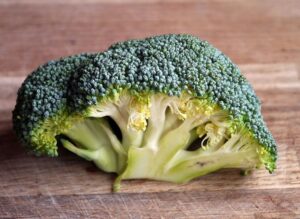Potatoes are a very popular ingredient in many human dishes. Boiled potatoes, Chips, plates and many other variations often land on our plates. For us they are a healthy addition, containing vitamin C, vitamin B6, iron, magnesium and other nutrients. Do potatoes fed to dogs have the same positive effect? Everything depends on how they are prepared and how much we intend to include in the dog’s diet.
Can a dog eat raw potatoes?
Absolutely not! Raw potatoes can be harmful to your dog because they contain solanine, the same compound that the unripe and green parts of the tomato contain, as described in the article on tomatoes for dogs. So giving raw potatoes to your dog is categorically forbidden, but once cooked, the situation changes!
Can a dog eat boiled potatoes?
In this form, we can use potatoes as a supplement to the dog’s diet. Of course you need to choose the right proportions and you should consult a vet. We must also remember to avoid salt, spices and all other additives, just like in the case of other vegetables cooked for the dog at home.
In moderation, potatoes will become a valuable source of many nutrients. However, do not overdo it as too many potatoes in your dog’s meal could lead to obesity and other health problems for your pet. This delicacy should be avoided by dogs with diabetes (potatoes have a high glycaemic index) and dogs that are not very active (due to the large amount of carbohydrates in potatoes).
Can a dog eat Chips? Can a dog eat baked potatoes?
Chips are not recommended for dogs due to the way they are prepared. The oil used for frying and unhealthy additives can cause numerous problems in the digestive tract of our pet. Baked potatoes, on the other hand, as well as boiled potatoes are acceptable – as long as they do not contain any additives.
My dog ate a raw potato, what should I do?
Any consumption of raw potatoes by your pet should be consulted with your vet. Solanine in small amounts will usually only cause problems with the digestive system, which should go away on their own, but in the case of more serious poisoning can be dangerous for the pet. Characteristic symptoms are vomiting, diarrhoea, drowsiness, salivation or convulsions.
Before introducing additional ingredients into a dog’s diet or preparing homemade food for a dog, it’s worth comparing different possibilities and choosing such additives that will bring the greatest benefits. Perhaps porridge for dogs or rice for dogs would be better than potatoes?




